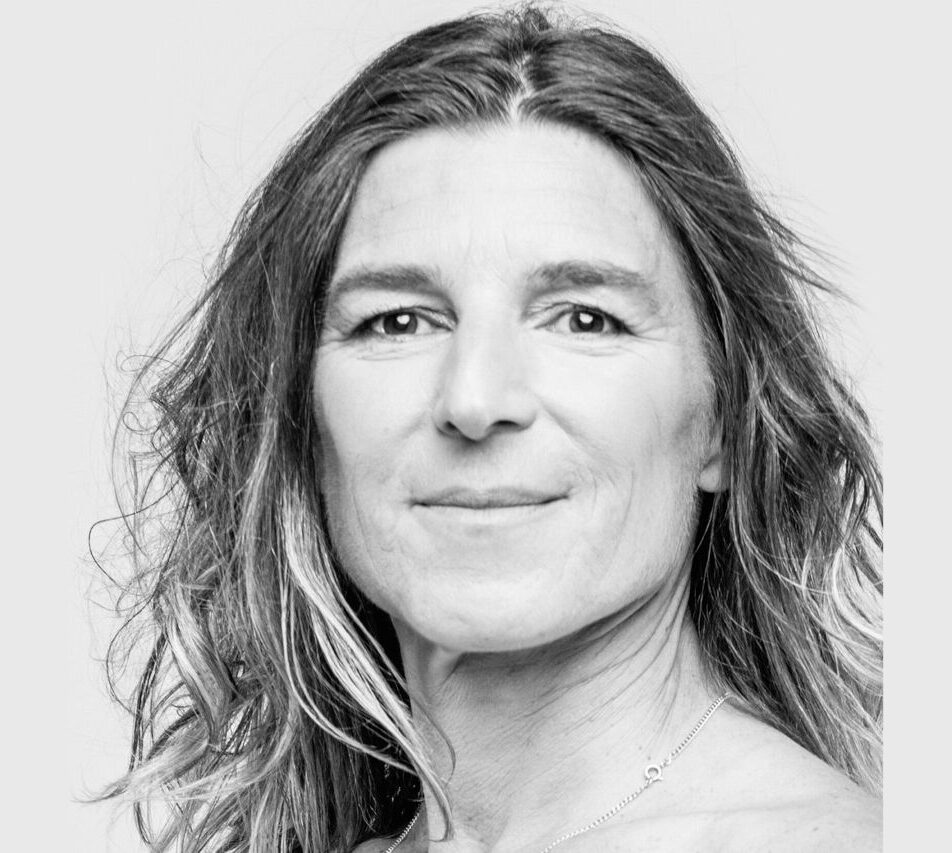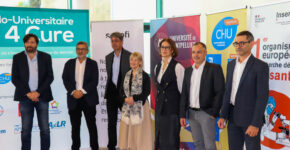Fabienne Remize: a good vintage
A specialist in wine microorganisms, biologist Fabienne Remize is changing scale by taking over the management of a large unit, the UMR Sciences pour l'œnologie (SPO: University of Montpellier, INRAE, Institut Agro – Montpellier SupAgro) as part of the I-SITE MUSE attractiveness program.

The circle is complete. In 1999, Fabienne Remize completed her studies in Montpellier with a PhD in microbiology at the Institut des Produits de la Vigne. Twenty years later, she returned to the Languedoc capital to head up the Joint Research Unit for Oenology (UMR SPO). While wine has occupied a large part of the researcher's career, make no mistake, it is wine's microscopic dimension that captivates her. This molecular biologist works on the yeasts and bacteria involved in winemaking.
In her thesis, Fabienne Remize discovered how to obtain yeast strains that produce less ethanol in favor of glycerol. This is an important contribution to winemaking because this reorientation of metabolic flows makes it possible to obtain lighter and rounder wines. This applied research therefore meets the expectations of the wine industry.
And these concerns have not lost their relevance, quite the contrary. In the region, the alcohol content of wine has increased by four points over the last 30 years due to global warming. Research into winemaking must—now more than ever—take this perspective of climate change into account. This is particularly true in its applied dimension, to support winegrowers' adaptation strategies.
Biopreservation
Times have changed, and practices have evolved. While winemaking used to rely heavily on inputs, even using genetic engineering to develop new strains, today environmentally friendly practices are gaining momentum. "We are more interested in the role of the grape ecosystem in the fermentation process," explains the microbiologist, who is measuring the evolution of her discipline. Demand favors more "natural" wines, particularly those with fewer sulfites.
Here again, Fabienne Remize's work on bioprotection has direct practical applications. "The aim is to modify microbial balances to promote flora whose antimicrobial and antioxidant properties limit sulfite intake," explains the specialist. Biopreservation is one of her main fields of research. First as a lecturer at AgroSup Dijon between 2000 and 2008, where she worked on microorganisms involved in wine spoilage. In particular, she focused on Oenococcus oeni, an important bacterium involved in malolactic fermentation, which modifies the acidity of wine. Controlling its development is necessary to develop specific aromas and give more flexibility. Another focus of her research is Brettanomyces, yeasts that give wine an unpleasant animal odor. The researcher has developed a PCR test method to quantify these yeasts before bottling.
Once again, the technique is of interest to the wine industry. And not just wine, for that matter. This gave Fabienne Remize the opportunity to take a step back and spend three years in the private sector at the Technical Center for the Preservation of Agricultural Products (CTCPA) in Avignon. As a project manager in microbiology, she set up an early detection system for spoilage bacteria in the canned food production chain.
“Positive momentum”
Then a position as professor at the University of La Réunion brought her back into academia. A new hemisphere and a new thematic focus, as she now works on the use of lactic acid bacteria for the production of processed fruits and vegetables. Controlling the development of these weakly acidifying bacteria makes it possible to manipulate microbial balances to limit the development of pathogenic bacteria. The benefit is twofold: by avoiding heating, this technique preserves the nutritional quality of the food and ensures product preservation. These are interesting characteristics for various fresh fruit and vegetable products such as juices, smoothies, lacto-fermented products, and pre-cut fruit. Last August, her team obtained a patent for a biopreservation technique for carrots and mangoes. Discussions are underway for the process to be adopted by the agri-food industry.
But her academic background is not everything. The teacher-researcher knows that, in this new position, it will be her management skills that will be most in demand: "At the UMR SPO, my role will be to manage a team of nearly 100 people (including 60 permanent staff). " She has already taken her first steps in management as deputy director of the École Supérieure d'Ingénieurs Réunion Océan Indien (ESIROI), where she was in charge of training. Today, she enjoys the "positive dynamic" she discovered within this unit, which brings together INRAE, Montpellier SupAgro, and the University of Montpellier. "A lot of work was done with the teams, which led to a reorganization around the major challenges of oenology," says the woman who is also delighted with this promotion in her favorite city.
